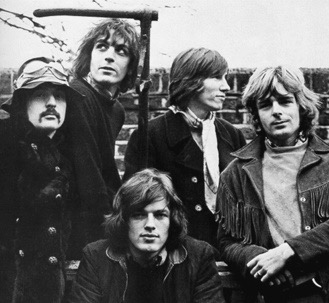Robert Plant, born Robert Anthony Plant on August 20, 1948, in West Bromwich, England, is an iconic figure in the world of rock music.
Robert Plant, born Robert Anthony Plant on August 20, 1948, in West Bromwich, England, is an iconic figure in the world of rock music. His career, spanning over five decades, has been marked by groundbreaking achievements, both as the lead singer of Led Zeppelin and as a solo artist. His distinctive voice, charismatic stage presence, and innovative approach to music have solidified his place as one of rock’s most influential and enduring artists.
Early Life and Musical Beginnings
Robert Plant was born into a working-class family. His father, Robert Plant Sr., was a civil engineer, and his mother, Annie Plant, was a housewife. Growing up in the industrial town of West Bromwich, Plant was exposed to a diverse range of music early on. His father was a fan of traditional jazz, and Plant’s early influences included artists like Elvis Presley, Buddy Holly, and Muddy Waters. His interest in music was further fueled by the burgeoning British rhythm and blues scene of the 1960s.
Plant’s initial foray into music began with local bands, including the Crawling King Snakes, where he honed his vocal skills and stage presence. It was during this period that Plant’s powerful, blues-inflected voice began to attract attention. His distinctive sound and energetic performances soon caught the eye of others in the music industry.
### Formation of Led Zeppelin
The turning point in Plant’s career came in 1968 when he was invited to join the newly formed band, Led Zeppelin. The band was the brainchild of guitarist Jimmy Page, who was looking to form a new group after the dissolution of his previous band, the Yardbirds. Page was impressed by Plant’s vocal prowess and stage charisma, and Plant was joined by drummer John Bonham and bassist John Paul Jones to complete the lineup.
Led Zeppelin’s self-titled debut album, released in 1969, was a commercial and critical success. The album showcased Plant’s powerful voice and the band’s unique blend of blues, rock, and psychedelia. Tracks like “Good Times Bad Times” and “Dazed and Confused” highlighted the band’s innovative approach to rock music.
### Rise to Fame
Throughout the 1970s, Led Zeppelin achieved unprecedented success. The band’s music evolved, incorporating elements of folk, Eastern music, and hard rock. Plant’s voice, characterized by its high range and emotional intensity, became a defining feature of the band’s sound. Songs like “Whole Lotta Love,” “Stairway to Heaven,” and “Black Dog” became anthems of the era.
Plant’s lyrics often drew on mythology, mysticism, and personal experiences, adding depth and intrigue to the band’s music. His on-stage performances were legendary, marked by his commanding presence and ability to connect with audiences on a visceral level. Led Zeppelin’s tours were renowned for their grandeur, with elaborate light shows and extended instrumental jams.
### Challenges and Changes
Despite the band’s immense success, the 1970s were not without challenges. The death of drummer John Bonham in 1980 marked the end of Led Zeppelin. The loss of Bonham was a devastating blow to Plant and his bandmates, and the remaining members decided to disband rather than continue without him.
Plant’s post-Zeppelin career began with a period of introspection and reinvention. His solo debut, *Pictures at Eleven* (1982), was well-received and marked a departure from Led Zeppelin’s sound. The album showcased Plant’s versatility and willingness to explore new musical territories. It was followed by several successful solo albums, including *The Principle of Moments* (1983) and *Now and Zen* (1988), which further established him as a prominent solo artist.
### Collaborations and Artistic Evolution
Throughout the 1980s and 1990s, Plant continued to evolve artistically, experimenting with different genres and collaborating with a diverse range of artists. One of the most notable collaborations was with former Led Zeppelin bandmate Jimmy Page. The two worked together on the *No Quarter* (1994) project, which combined their classic rock sound with elements of world music.
Plant’s work with Alison Krauss on the album *Raising Sand* (2007) was another significant milestone. The album, which blended country, folk, and blues, received critical acclaim and won several Grammy Awards, including Album of the Year. The collaboration showcased Plant’s ability to adapt and thrive in different musical contexts while maintaining his distinctive voice and artistic integrity.
### Legacy and Influence
Robert Plant’s influence on rock music is immeasurable. His powerful vocals and innovative approach to songwriting have inspired countless musicians across genres. Plant’s ability to blend different musical styles and his willingness to experiment have kept his music fresh and relevant for over five decades.
In addition to his musical achievements, Plant has been recognized for his contributions to the arts. He has received numerous awards and accolades, including inductions into the Rock and Roll Hall of Fame as a member of Led Zeppelin. His impact on popular music is further evidenced by his continued success and relevance in the industry.
### Personal Life and Philanthropy
Outside of his music career, Plant has led a relatively private life. He has been involved in various philanthropic efforts, supporting causes related to music education, environmental conservation, and disaster relief. Plant’s commitment to these causes reflects his desire to give back and make a positive impact on the world.
### Conclusion
Robert Plant’s journey from a young aspiring musician in West Bromwich to a global rock icon is a testament to his talent, perseverance, and artistic vision. His contributions to music, both with Led Zeppelin and as a solo artist, have left an indelible mark on the industry. Plant’s legacy continues to influence and inspire new generations of musicians and fans, ensuring that his impact on the world of rock music will be felt for years to come.




